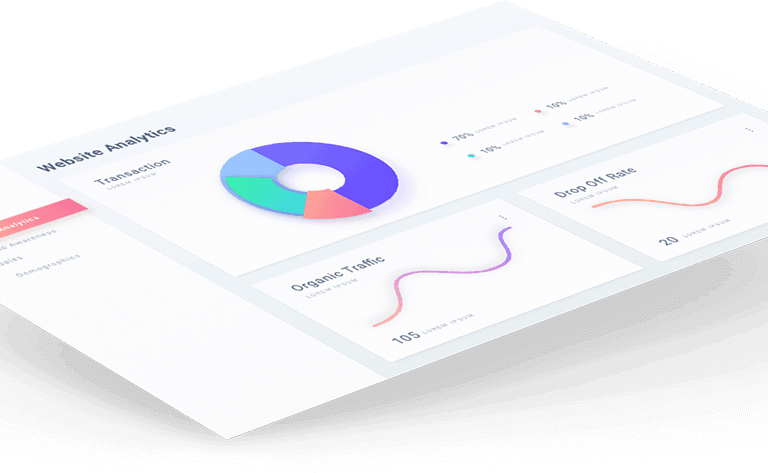In today’s fast-paced and highly competitive world, efficient fleet management has become a crucial aspect of the trucking industry in Australia. The effective utilization and management of truck fleets play a vital role in enhancing operational efficiency, reducing costs, ensuring compliance with regulations, and improving overall customer satisfaction.
This article will explore the importance of fleet management in the trucking industry, discuss key components of fleet management, highlight compliance and regulatory considerations, outline the benefits of implementing fleet management systems, address challenges faced, delve into future trends, and conclude with the advantages it brings to the industry. The trucking industry in Australia relies heavily on fleet management to streamline operations and maximize efficiency. Fleet management encompasses various activities such as vehicle tracking, maintenance and repairs, driver management, fuel optimization, and more. With the aid of advanced technologies and robust systems, fleet managers can monitor, analyze, and optimize the performance of their truck fleets effectively.
Importance Of Fleet Management In The Trucking Industry
Enhancing Efficiency And Productivity
Efficient fleet management enables trucking companies to streamline their operations, leading to increased productivity. By leveraging technologies like vehicle tracking and telematics, fleet managers gain real-time visibility into their fleets, enabling them to monitor vehicle locations, optimize routes, and respond promptly to any unforeseen circumstances or delays.
Improving Safety And Compliance
“Safety is of paramount importance in the trucking industry, and fleet management plays a crucial role in ensuring compliance with safety regulations.”

By implementing driver management and training programs, companies can enhance driver skills, promote safe driving behaviour, and reduce the likelihood of accidents and violations. Fleet management systems also facilitate compliance with Australian trucking industry regulations such as speed limits, vehicle weight restrictions, and rest period requirements. Moreover, features like electronic work diaries (EWDs) help automate the recording of driver work and rest times, ensuring accurate and reliable data for regulatory compliance.
Reducing Costs And Optimising Resources
Fleet management is instrumental in reducing costs and optimizing resources for trucking companies. By closely monitoring fuel consumption, fleet managers can identify inefficient driving habits, implement fuel-saving measures, and ultimately reduce fuel expenses. Additionally, optimizing routes based on real-time data and traffic conditions minimizes unnecessary mileage and saves both time and fuel.
Key Components Of Fleet Management
To effectively manage truck fleets, several key components come into play:
Vehicle Tracking And Telematics
Vehicle tracking systems leverage GPS technology to monitor and track the location, speed, and performance of trucks in real time. Telematics provides valuable data on fuel consumption, engine diagnostics, driver behaviour, and more, enabling fleet managers to make informed decisions and take proactive measures to optimise fleet operations.
Maintenance And Repairs
Regular maintenance and timely repairs are crucial to keep truck fleets in optimal condition. Fleet management systems help schedule routine maintenance tasks, track vehicle service history, and send notifications for required repairs. This proactive approach minimizes unplanned downtime, extends the lifespan of vehicles, and improves overall fleet reliability.
Driver Management And Training
Effective driver management is essential for fleet efficiency and safety. Fleet management systems assist in monitoring driver performance, tracking hours of service, and identifying areas for improvement. Training programs can be implemented to address specific driver needs, promote safe driving practices, and ensure compliance with regulations.
Fuel And Route Optimisation
Fuel costs constitute a significant portion of a trucking company’s expenses. Fleet management systems analyze data such as vehicle load, traffic conditions, and fuel prices to optimize routes and reduce fuel consumption. By selecting the most efficient routes, companies can save costs and increase operational efficiency.
Compliance And Regulatory Considerations
The trucking industry in Australia operates within a framework of regulations and compliance requirements. Fleet management plays a crucial role in ensuring adherence to these regulations.
Australian Trucking Industry Regulations
Trucking companies in Australia must comply with various regulations, including speed limits, vehicle weight restrictions, and driver work and rest time regulations. Failure to comply can result in penalties, fines, and damage to a company’s reputation. Fleet management systems provide the necessary tools to monitor and enforce compliance, ensuring that all operations align with legal requirements.
Electronic Work Diaries (EWDs)
EWDs are electronic alternatives to paper-based work diaries. They accurately record driver work and rest times, simplifying compliance with fatigue management regulations. EWDs automate the process of capturing and reporting this information, reducing administrative burdens, and improving accuracy.
Chain Of Responsibility (CoR)
The Chain of Responsibility is a legal framework that holds parties accountable for safety breaches in the trucking industry. Fleet management systems help enforce CoR obligations by providing visibility into driver behavior, vehicle conditions, and adherence to regulations. This ensures that all parties involved, including fleet managers, drivers, and consignors, share the responsibility for compliance.
Benefits Of Implementing Fleet Management Systems
Implementing fleet management systems offers numerous benefits for the trucking industry in Australia:
Real-time Monitoring And Reporting
Fleet management systems provide real-time monitoring and reporting capabilities, offering fleet managers instant visibility into vehicle locations, status, and performance. This real-time information allows for proactive decision-making, prompt response to issues or delays, and improved operational efficiency.
Enhanced Fleet Safety
Safety is a top priority in the trucking industry. Fleet management systems assist in enhancing fleet safety. Through features such as driver behaviour monitoring, fleet managers can identify and address risky driving habits, reducing the likelihood of accidents and promoting a safer work environment. Real-time tracking and alerts enable an immediate response to emergencies or potential safety hazards, ensuring the well-being of both drivers and the public.
Improved Customer Service
Efficient fleet management directly impacts customer service. By optimizing routes and providing accurate estimated arrival times, companies can meet customer expectations and deliver goods in a timely manner. Real-time tracking enables proactive communication with customers, providing updates on shipment status and addressing any concerns promptly. These measures contribute to increased customer satisfaction and loyalty.
Data-driven Decision Making
Fleet management systems generate a wealth of data that can be leveraged for informed decision-making. Analyzing data on fuel consumption, maintenance costs, driver performance, and more helps identify areas for improvement, optimize resource allocation, and make strategic decisions that drive operational efficiency and profitability.
Challenges In Fleet Management
While fleet management offers numerous benefits, it also comes with its fair share of challenges:
Driver Shortages and Retention
The trucking industry in Australia faces an ongoing challenge of driver shortages. Recruiting and retaining qualified and skilled drivers is crucial for fleet management success. Companies need to implement driver retention strategies, offer competitive compensation packages, and provide ongoing training and development opportunities to attract and retain talented drivers.
Technological Advancements And Integration
As technology continues to evolve rapidly, fleet management systems need to keep pace with new advancements. Integrating various technologies and ensuring compatibility with existing systems can be complex and time-consuming. Fleet managers must stay updated on emerging technologies and choose solutions that offer scalability, flexibility, and seamless integration to maximize operational efficiency.
Rising Fuel Costs
Fuel costs are a significant expense for trucking companies. Fluctuating fuel prices can impact profitability and overall operational costs. Fleet management systems help optimize routes, monitor fuel consumption, and implement fuel-saving strategies to mitigate the impact of rising fuel costs. However, staying proactive and continuously exploring alternative fuel options, such as electric vehicles, can further address this challenge.
Future Trends In Fleet Management
The future of fleet management in the trucking industry is driven by technological advancements and evolving industry requirements. Some notable trends include:
Automation And Connected Vehicles
Automation technologies, such as autonomous trucks and platooning, have the potential to revolutionize the trucking industry. Connected vehicles, equipped with advanced sensors and communication systems, enable real-time data exchange, enhancing safety, efficiency, and overall fleet management capabilities.
Artificial Intelligence And Predictive Analytics
Artificial Intelligence (AI) and Predictive Analytics hold immense potential in fleet management. AI-powered algorithms can analyze vast amounts of data, predict maintenance needs, optimize routes, and even enhance driver performance. Predictive analytics help fleet managers make data-driven decisions, identify potential issues before they occur, and proactively address them.
Electric And Sustainable Fleets
With the global focus on sustainability, electric and sustainable fleets are gaining traction in the trucking industry. Electric vehicles reduce carbon emissions and offer cost savings in the long run. Fleet management systems that support electric vehicle integration and provide infrastructure solutions will play a crucial role in facilitating the transition to sustainable fleets.
Conclusion
Effective fleet management is essential for the trucking industry in Australia to enhance efficiency, ensure compliance, and optimize resources. By leveraging advanced technologies, implementing robust systems, and addressing challenges, companies can achieve improved safety, reduced costs, and increased customer satisfaction. Embracing future trends like automation, AI, and sustainability will drive the industry forward, making fleet management a strategic advantage for businesses.





